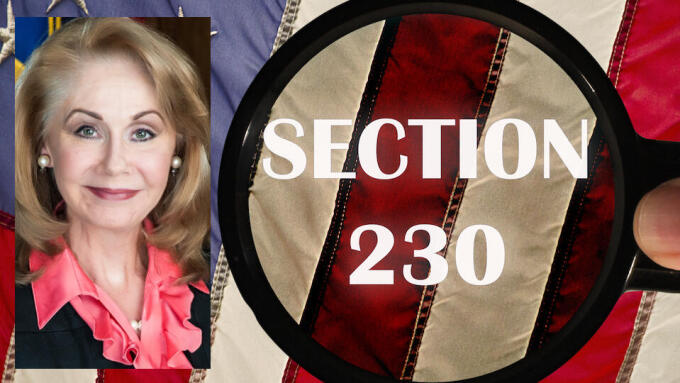HOUSTON — A Texas Supreme Court Justice questioned long-standing interpretations of Section 230 liability protections this week, while hearing a case that deliberately tests the exception to the so-called “First Amendment of the internet” that was carved out by FOSTA-SESTA for alleged instances of human trafficking.
The Texas Supreme Court is hearing the case after a Harris County district judge and a Houston appellate court rejected Facebook’s argument that Section 230 explicitly shields online platforms from liability for content posted by third-party uploaders.
Lawyers for the three plaintiffs, three women only identified as “Jane Does” who allege they were victims of human trafficking as minors, claim that Facebook would be liable under the exception to Section 230 immunity created in 2018 by FOSTA-SESTA.
The lawyers allege Facebook is liable because it “provided the platform that resulted in their being trafficked,” legal site Law 360 reported.
They accuse Facebook of “negligence, gross negligence and violations of Texas Civil Practice and Remedies Code 98.002, an anti-trafficking law passed in 2009,” Law 360 reported.
According to the news site, the justices in the Texas Supreme Court questioned during oral arguments yesterday whether Section 230 is applicable if the allegation is that Facebook “provided an unrestricted platform for predators to exploit, extort and recruit children into the sex trade.”
A Republican Justice's Questions
Texas Supreme Court Justice Debra Lehrmann — a Republican appointed by Governor Rick Perry in 2010 and then twice reelected — took aim at Section 230 protections when questioning Facebook’s immunity because it may have “failed to warn users of the dangers of sex trafficking.”
One of the Jane Does’ allegations, Lehrmann highlighted during her questioning of Facebook’s attorney, “is not about the published statement, [but] about the failure of the company to warn that this could lead to violent sexual behavior.”
A lawyer for the Jane Does, Warren Harris of Bracewell LLP, also specifically cited an October 2020 dissent from Justice Clarence Thomas in the Malwarebytes Inc. v. Enigma Software Group USA case.
Thomas surprised legal observers by using that dissent to openly criticize Section 230 and advocate for its reform, a militant act of judicial advocacy from the highest bench that inserted the Justice into an ongoing debate that is the constitutional prerogative of the Legislative branch.
“Courts have long emphasized nontextual arguments when interpreting 230, leaving questionable precedent in their wake," Thomas wrote at the time. "Extending 230 immunity beyond the natural reading of the text can have serious consequences,” he added, and specified his concern about giving companies immunity from civil claims for “knowingly host[ing] illegal child pornography” and “for race discrimination.”
“We should be certain that is what the law demands,” Thomas concluded.
Yesterday, attorney Warren Harris told the Texas Supreme Court that in his view whenever Facebook has knowledge “that traffickers are using its platform to ‘groom children and put them into human trafficking,’ that triggers a duty to warn users,” according to Law 360.
The lawsuit was filed in October 2018, and can be found as Facebook Inc. et al., case number 20-0434, in the Supreme Court of Texas.
Main Image: Texas Supreme Court Justice Debra Lehrmann (Photo: Texas Supreme Court)






